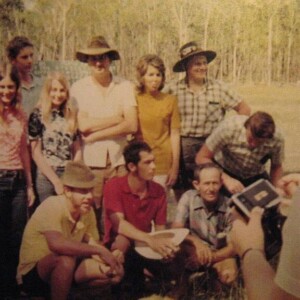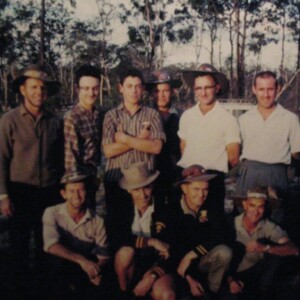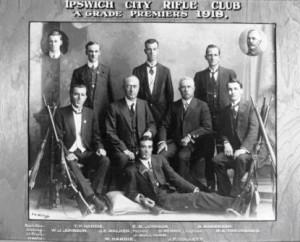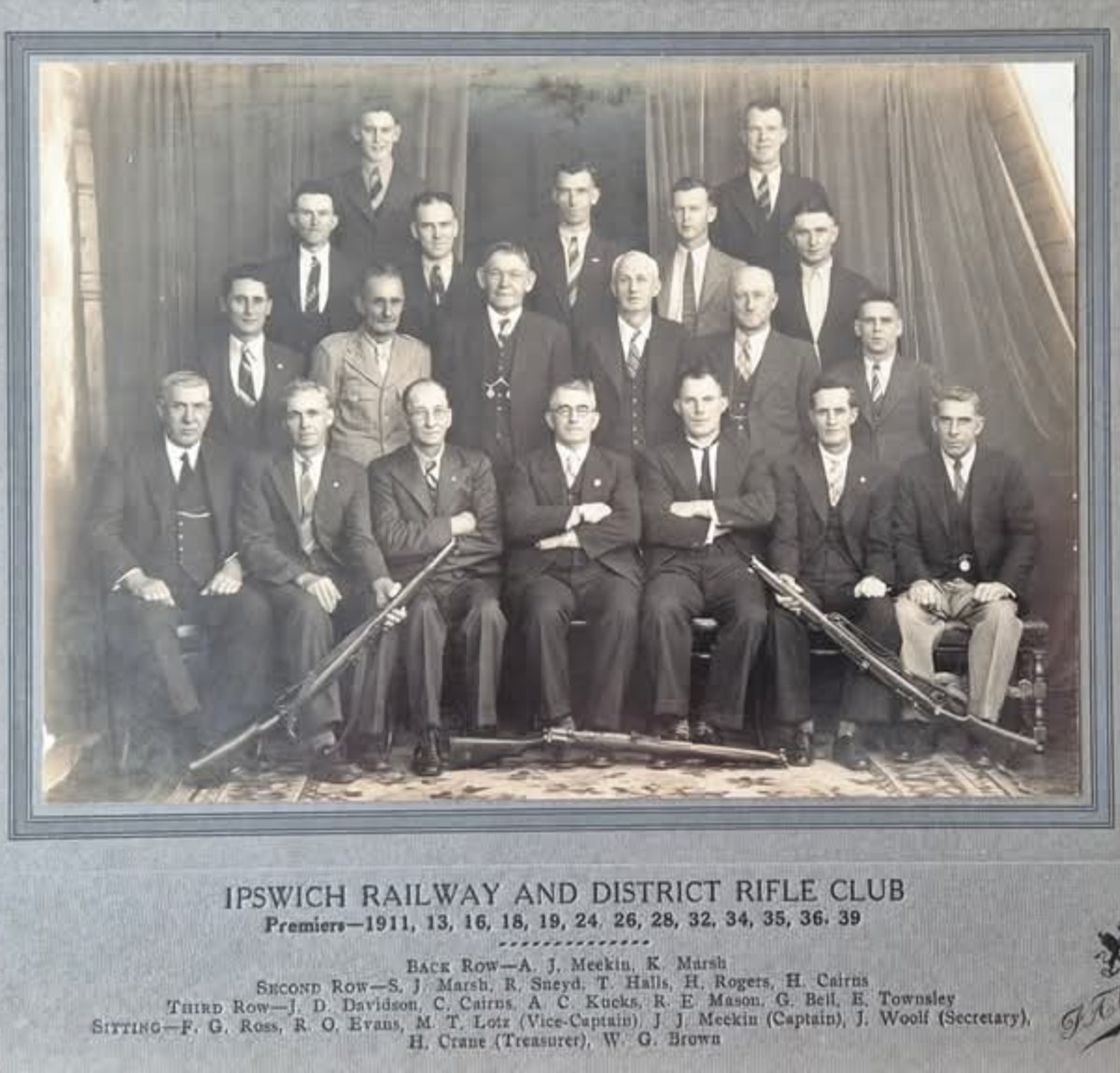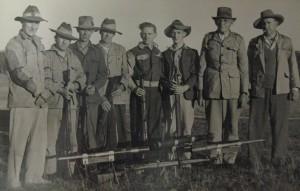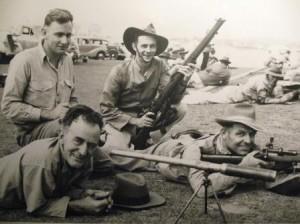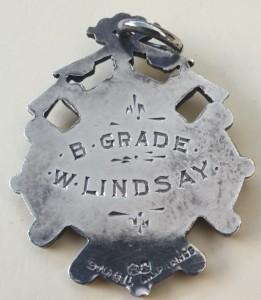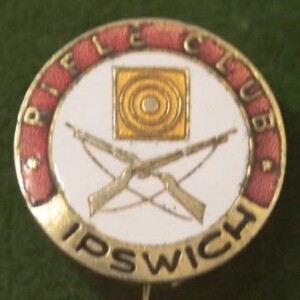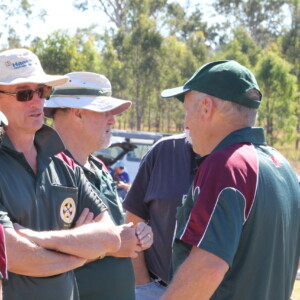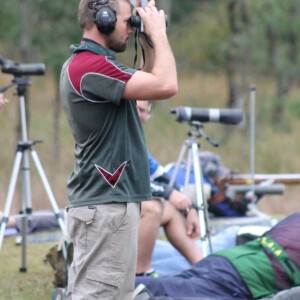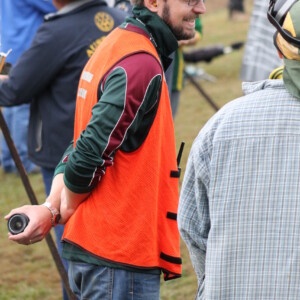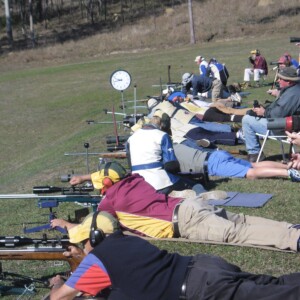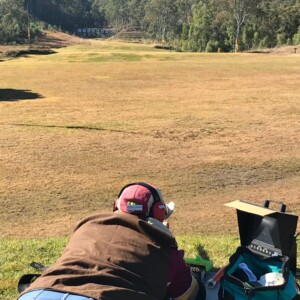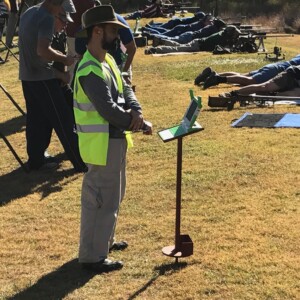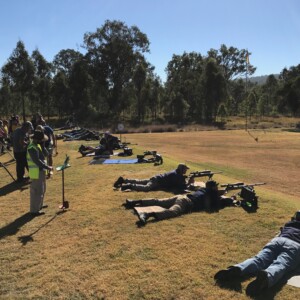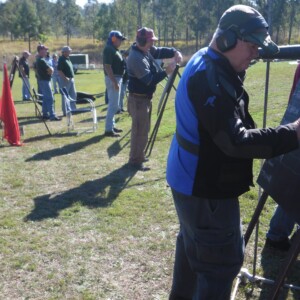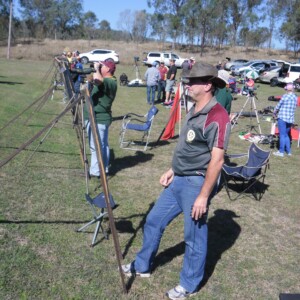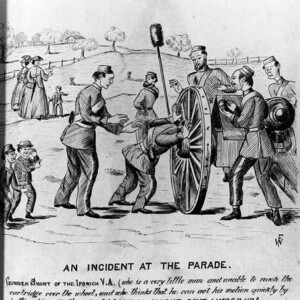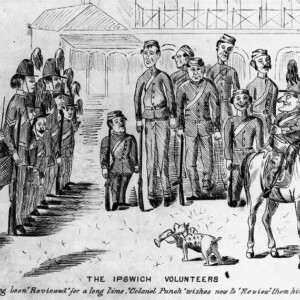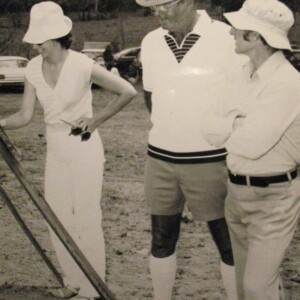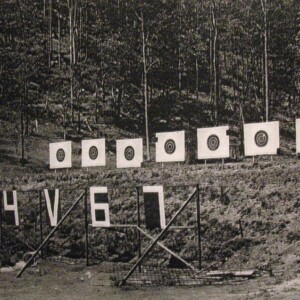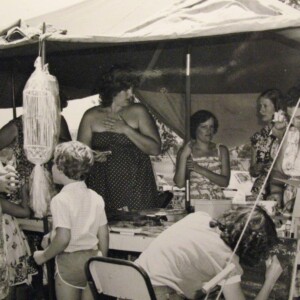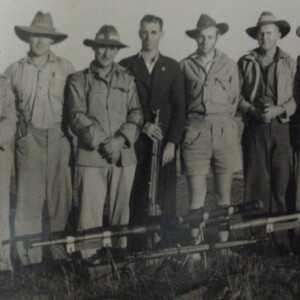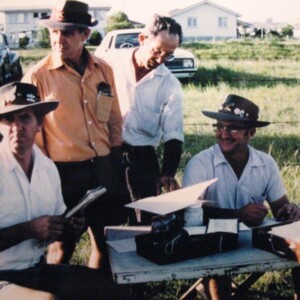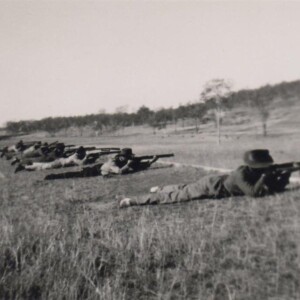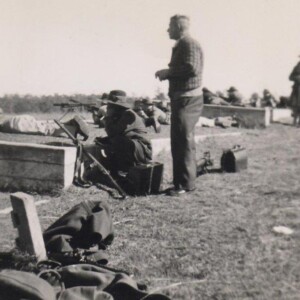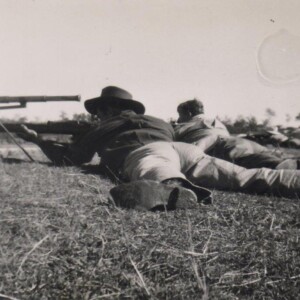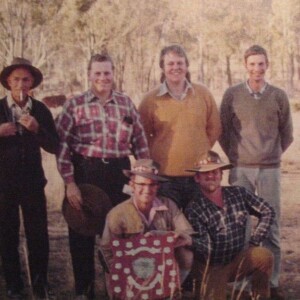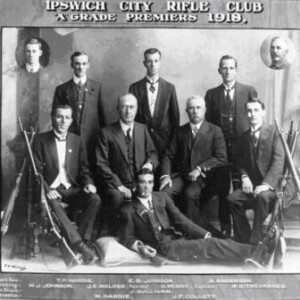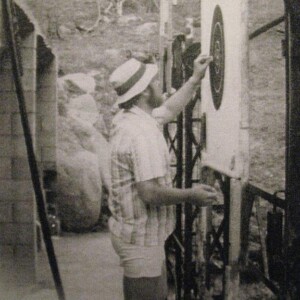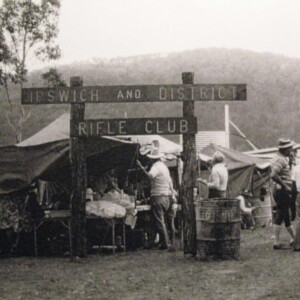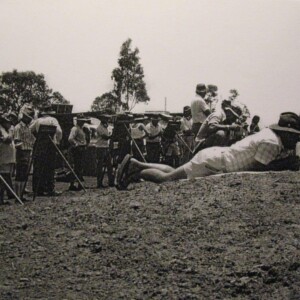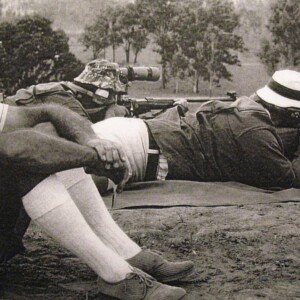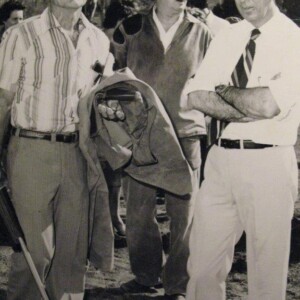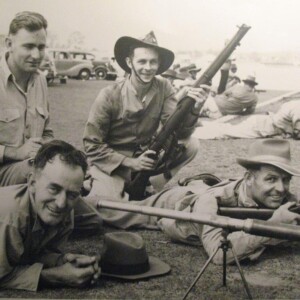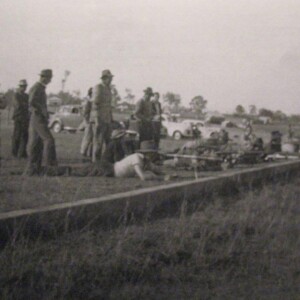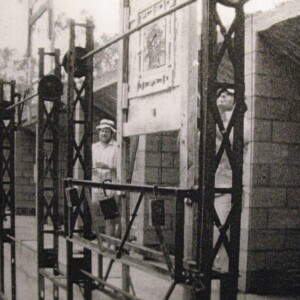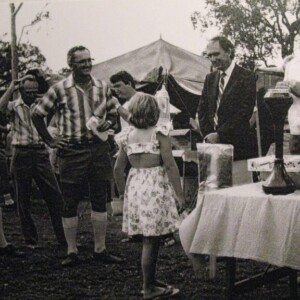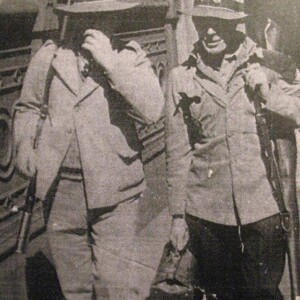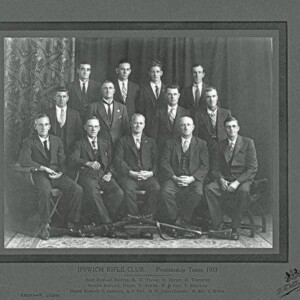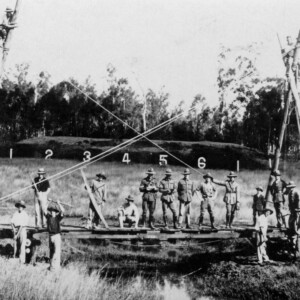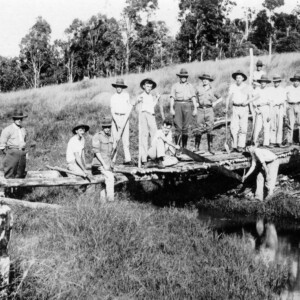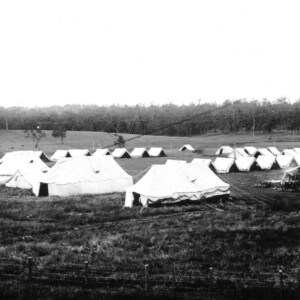History of Full Bore Target Shooting
In order to increase the ability of Britain's marksmen following the Crimean War, Queen Victoria inaugurated the first Queen's Prize Shoot in 1860 by offering ₤250 to the best marksman in Britain.
Other Commonwealth Countries followed suit soon after and subsequently international teams matches were conducted, notably with the Australian rifle team being Australia's first representative team to compete abroad.
The Queensland Rifle Association was formed in 1861 and Queensland's first Queen's prize was shot at the Victoria Park in 1878.
The rifle range was moved to Toowong in 1887, then Enoggera in 1910 and finally Belmont in 1964.
The competition has always been named the Queen's or King's Prize shoot depending on the reigning monarch.
The Queensland Rifle Association has as of 2009 officially been recognised as the oldest state sporting association within Queensland having formed in 1861, some two (2) years before that of the Queensland Turf Club and four (4) years before the establishment of the Queensland Cricket Association.
Modern full bore (TR class) target shooting is the use of .308 or .223 calibre, single shot rifles, held in the prone position unsupported by any tripod or device, without the use of telescopic sights, shot over ranges from 300m/yrds to 1000m/yrds.
In order to hit the bulls eye the rifle must be sighted and held without 1/100th of an inch movement (1 minute of angle for the engineers).
Full bore is a Commonwealth Games sport.
The establishment of the first Rifle Clubs in Ipswich
"It is in contemplation to establish a Rifle Club in Ipswich to serve eventually as a basis for Volunteer Corps, and several persons have signified their wish to join us.
We can conceive nothing more likely to the promotion of good fellowship among our fellow-townsman then such intercourse as the practice of rifle shooting is calculated to produce, while at the same time it increases the powers of the individual for self-defence, and would tend to general efficiency in the use of fire-arms". (Quote from The North Australian, 2nd August 1859).
Extract from the Courier, Sat 27 Aug 1859:
THE RIFLE MOVEMENT. - A movement has been going on for some time past in favor of a rifle corps, and a good number of " masculine animals" having appended their names to a document to that effect, a meeting was held on Tuesday evening in Mr. Cramp's school-house, to initiate more active steps in the matter. There was a large muster; every man present being filled with a loyal devotion to our Queen, to Fatherland, and to this our adopted country. Mr. Kent presided. After very interesting and patriotic addresses from the chairman and Mr.Cramp, Mr. Bethune offered his valuable services as drill-master. He would be most happy to teach them the "art of war, for he had been a soldier in his youth, when he had the honor to serve her Majesty as lance corporal's comrade in the Guards! And mounted sentry, yes, he had, alongside the ' monument,' on dark and dismal nights at Halloween. He had learnt something in the Guards which was just the thing for the Rifles. He was sure he could teach the 'Wheel about." Mr. Cramp proposed that a Rifle Club be now formed, and that it be called the "Ipswich Rifle Club.'" It was suggested by Dr. Challinor that it be named the “North Australian Rifle Club." Mr. Cramp assented, and the resolution was carried unanimously. Mr. Kilner proposed a resolution somewhat to this effect :-" That a committee of five, namely, Messrs. Kent, Kilner, Dr. Lucas, Messrs. Bethune and Heitz, be appointed, and that they solicit His Excellency, the Governor-General, to patronise the Club, and that his advice be requested ; also that the committee should point out to his Excellency how admirably adapted the country, from the mouth of the river to this, the head of the navigation, is for a rifle corps to bamboozle and humbug an enemy invading the country in river boats. Carried unanimously. Mr. Munro Smith then " sounded a retreat " by proposing an adjournment ; and that the committee be empowered to call another meeting to report progress, and for the furthertransaction of business. Carried unanimously. After a vote of thanks to the chairman the meeting dispersed.
History of Ipswich & District Rifle Club.
On May 19, 1860, the first volunteer company formed at Ipswich, in the recently proclaimed colony of Queensland, with fifty men enlisting forming two corps.
These corps were The Ipswich Troop of the Queensland Mounted Rifles and The First, or Ipswich, Company of the Queensland Rifle Brigade, otherwise referred to as the Cavalry and Infantry respectively.
Brisbane followed suite a short time later.
The only active service that the Ipswich volunteers saw was in 1891 during the Shearer's strike.
The Queensland Rifle Association and the History of the Shooting Movement in Ipswich
"The Queensland Rifle Association was undoubtedly the natural outcome of the early volunteer movement in this State.
The first volunteer force was formed in 1860, by Sir George Ferguson Bowen, the Governor of the Colony. (Quote from Queensland Rifle Association Jubilee Official Souvenir and Program, 1927).
The history of the Ipswich shooting movement is synonymous with the development of the Queensland Rifle Association.
The volunteer rifle movement of the nineteenth century has been credited as the forerunner of the QRA and as this movement began in Ipswich in 1859, the impact of the Ipswich clubs on the movement is clear.
But this influence did not end with the beginning of the twentieth century.
Throughout the last century, members of the Ipswich Railway Rifle Club and, more recently, the Ipswich and District Rifle Club have played a major role in the shaping of the shooting movement in Queensland.
Not only have many of its members been included in state and national teams but they have also been committee members of the QRA board.
As the young up and coming shooters of the club continue to improve and proudly represent their state and country, it is hoped that the Ipswich shooting traditions of producing world-class sportsmen will continue.
Formation of the Ipswich & District Rifle Club
The Ipswich and District Rifle Club formed out of its members early associations with the volunteer movement during the late nineteenth century.
By 1906 there were approximately eleven rifle clubs in Ipswich and its surrounding regions.
These were the Goodna, Dinmore, Forest Hill, Laidley, Rosewood, Gatton (still functioning), Marburg, Lowood, Boonah (still in existence), Ipswich City and Ipswich Railway Rifle Clubs.
On the 14th of November 1906, these clubs formed the Ipswich and West Moreton Rifle Clubs Union, which initially had 336 members.
Over the years, as the shooting movement waned in popularity, the majority of these clubs ceased to exist and so their remaining members joined with the only surviving club, the Ipswich Railway Rifle Club.
With a lack of associated clubs, the union too had to change and it has since become the South East District Rifle Association (SEDRA).
Since the 1970's the Ipswich Railway Rifle Club, whose base was at the old Redbank Rifle Range (established in 1912) has been known as the Ipswich and District Rifle Club and is now based at Ripley Rifle Range, which has been its home since 1980.
The Club has a long and proud association with the shooting movement in this country, with a number of its members having represented the state and country in men's, ladies' and under 25's teams.
| Year | Existed | Closure | Club | Range | Town/District | DRA |
| 1859 | 1859 | Ipswich Rifle Club | Ipswich | |||
| 1860 | 1860 | One Mile | Ipswich | |||
| 1878 | 1878 | Ipswich Volunteers | North Ipswich | Ipswich | ||
| 1887 | 1887 | Ipswich Railway | ||||
| 1887 | 1887 | 1887 | Ipswich Volunteers | 1st Brassall Range | ||
| 1887 | 1887 | 1901 | Railway | One Mile Range | Ipswich | |
| 1887 | 1887 | Rosewood | ||||
| 1889 | 1889 | Ipswich District | 2nd Range Brassall | |||
| 1889 | 1889 | 1900 | Ipswich Volunteers | 2nd Range Brassall | ||
| 1893 | 1893 | 1920 | St Helens | Dinmore | Ipswich | Ipswich & West Moreton |
| 1895 | 1895 | 1920 | Goodna Rifle Club | Ipswich | Ipswich & West Moreton | |
| 1896 | 1896 | Ipswich | One Mile | Ipswich | ||
| 1897 | 1897 | Fassifern | Boonah | |||
| 1904 | 1904 | 1920 | One Mile Range | |||
| 1905 | Flinders View | Ipswich | Ipswich & West Moreton | |||
| 1905 | Goodna District | Ipswich | Ipswich & West Moreton | |||
| 1905 | Marburg | Ipswich & West Moreton | ||||
| 1906 | 1906 | Dinmore | Dinmore | Ipswich | Ipswich & West Moreton | |
| 1906 | 1906 | Ipswich City | Ipswich | Ipswich & West Moreton | ||
| 1907 | 1907 | Esk-Gordon | Esk | Ipswich & West Moreton | ||
| 1907 | Plain Creek /Plainland | Ipswich & West Moreton | ||||
| 1908 | Toogoolawah | |||||
| 1910 | Boonah | Ipswich & West Moreton | ||||
| 1912 | Englesburg (Kalbar) | Kalbar | Ipswich & West Moreton | |||
| 1914 | Biarra Frontiersmen's | |||||
| 1914 | Fernval Frontiersmen | |||||
| 1914 | Ma Ma Creek | |||||
| 1914 | Winwill | |||||
| 1918 | Blackbutt | |||||
| 1918 | Harlin | |||||
| 1918 | Redbank District | |||||
| 1939 | 1939 | Ipswich Railway and District (from Ipswich Railway) | Redbank | Ipswich | ||
| 1953 | Lowood Marburg | |||||
| 1953 | Redbank and District | |||||
| 1963 | 1963 | Current | Ipswich and District Rifle Club. | Redbank | Ipswich | |
| Ipswich and District Rifle Club. | Ripley 1980 | Ipswich | SEDRA |
IPSWICH AND WEST MORETON DISTRICT RIFLE ASSOCIATION – B GRADE MEDALLION OF IPSWICH MEMBER W LINDSAY
Ipswich Rifle Club Across the Ages
